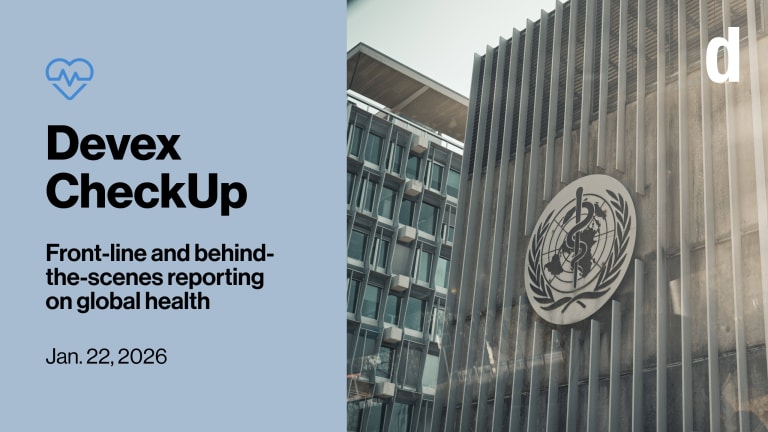
SAN FRANCISCO — When Bill Gates joined Instagram last month, his first photo showed him sitting down between girls and boys in white school uniforms with bowls of rice and beans.
“I just had a great lunch with some amazing kids at Kicheba Primary School in Muheza [Tanzania] and met Upendo Mwingira, a remarkable physician who has dedicated her career to fighting neglected tropical diseases,” he wrote in the caption. “I always love seeing how much progress the country has made to improve health and provide opportunity.”
The billionaire co-chair of the Bill & Melinda Gates Foundation visited the country — where he has traveled with his wife and co-chair Melinda many times — in part to see the BID Initiative. Led by the global health organization PATH and funded by the Gates Foundation, the program aims to bring data to decision-making for better health outcomes. Now, with $15 million from the Gates Foundation, Tanzania will pursue the first digital health investment strategy of its kind in the region.
“A really important underlying rationale behind the foundation’s investment is to learn what works in better using data to drive health sector performance, to lift up those lessons, and to encourage their adoption in a broader range of countries,” Marty Gross, senior program officer for HIV and Integrated Delivery at the Gates Foundation, told Devex via email. “The foundation is making similar data investments in a few other countries that we also believe can be exemplars, and which can learn from each other, as well as showing the rest of us how this can be done.”
It is a common problem across countries that, because routine health data is generally low quality, health decisions are based on best guesses rather than reliable information. The insufficient use of data to inform planning decisions, manage programs and deliver services can lead to life-threatening consequences, such as stock outs of medicines, delayed responses to outbreaks or wasteful health care spending.
While many countries have tackled pieces of this problem, efforts to build strong routine data ecosystems have focused on districts or verticals rather than scaling to the national level.
A fragmented system
“At the heart of PATH’s digital health strategy is our belief that ‘health’ is what makes digital health important, not ‘digital,’” said Dykki Settle, who leads the Digital Health Solutions Program at PATH, which has worked with the Tanzanian government on a Data Use Partnership to accelerate the use of data for decision-making across health systems. “In today’s fast-paced global information economy, digital is an accelerator and amplifier — transforming everything we do.”
In lower-middle income countries such as Tanzania, there is a need to address the dearth of quality data, as well as supporting areas such as digital and data literacy and legal and policy frameworks. But the way donors and partners have addressed these problems in the past has only made these problems worse, Settle said. Funding different health verticals has led to disconnected, fragmented and duplicative systems, approaches and strategies.
“It is not uncommon to visit a facility and find a tool for general data health collection, a tool for HIV, a tool for maternal health, immunization etcetera — none of them linked together — as well as separate trainings on data use for the same participants pulling health workers and managers away from care,” he said.
PATH’s strategy has been to support stakeholders, including the Tanzanian government, to align and coordinate their digital health investments and reduce this kind of fragmentation. The Gates Foundation’s $15 million investment will allow the country to implement the Digital Health Investment Road Map and 17 priority investments, ranging from digitizing hospital data to implementing a health data warehouse. This roadmap will position Tanzania to be a global leader in using better health data for better health outcomes, Settle said, and PATH will work with the government to share the lessons they are learning with countries facing similar challenges.
“At the moment, the data people are using to make decisions are not based on the realities on the ground, but on a census from five years ago,” Henry Mwanyika, director of the BID Initiative in Tanzania, told Devex. “Tanzania is ready to embrace technology. The government, PATH and the foundation are on a learning journey. Together we are discovering new things, like how to introduce technology in a way that it becomes a tool to make better decisions rather than a burden.”
The secret to success
Initially, the BID Initiative focused on the strengthening of immunization data, for example, providing data to outreach nurses who are going to villages to immunize children who have not come to the clinic.
“In the past, not knowing where these children might be, they simply go through rotations of visiting villages in turn or take an even more scattershot approach,” Settle said. “With BID’s immunization registry, they can now target villages and communities where there is a concentration of children who have not received immunization, resulting in a more effective use of time and resources.”
This effort builds on work that PATH has done on information technology and data use in health programs, such as the Malaria Control and Elimination Partnership in Africa.
“The real secret to PATH’s success in this instance, though, is the partnership it has developed with the government of Tanzania,” Gross said.
Gross, Settle and Mwanyika all emphasized the importance of putting the Tanzanian government in the driver’s seat of decision-making.
“Neither PATH nor the Gates Foundation appeared anywhere in the resulting strategy, which I believe is core to supporting both the essential leadership from the government, and the ability to use the strategy to coordinate the critical inputs from multiple donors and partners required to achieve the ambitious aims of the roadmap,” Gross continued. “This confluence of leadership, trust and technically rigorous support, and PATH’s lead-from-behind approach, will remain absolutely critical to the success of the Phase 2 Data Use Partnership investment.”
Working with PATH has meant charting the way together, said Mpoki Ulisubisya, permanent secretary at the Ministry of Health in Tanzania.
“There is strength in synergy, banking on each other for support, investment needed to walk the talk is colossal,” he said. “No single country in emerging economies could do it alone.”
On Thursday, the Tanzanian government announced that the country would start using Zipline drones for delivery of blood, vaccines and other medical supplies in early 2018, pointing to another example of how the country is bringing data and technology to global health.
The greatest challenge
The Gates Foundation has a strong interest in data and analytics, so data is at the center of much of what it supports across health and other areas of focus, Gross explained.
“In health, we invest heavily in the creation of population-level data on disease dynamics; on efficacy of specific interventions; on data about specific populations to inform drug, vaccine and intervention development; on the cost and cost-effectiveness of health interventions; on what people actually want, in terms of health care … all with the goal of informing health decisions among decision-makers, whether they be global funders, regional bodies, country governments, or a mother in a village,” he said.
Country planners, program managers and health care workers have received insufficient funding and attention for routinely produced data, he explained. Because these systems have been weak, the field has over-relied on expensive and infrequent surveys and research to provide data, which is not fit for purpose for real-time planning, management and decision-making. That is the rationale behind Gates Foundation’s supporting PATH and the Tanzanian government to modernize and strengthen these systems, and investing in the capacity and incentives for decision-makers to make better use of the data.
The goal is to improve the performance — and ultimately the impact — of these health programs.
“They’re on a learning journey. I think there is a lot of skepticism at the foundation and among many donors, and wisely so. Does digital really make sense?” Settle said. “You see so many examples of crash and burn. Technology alone is not enough. The biggest challenge in digital is funding across different health verticals.”
‘No one really has tried to bring it all together. That is the trust the foundation has placed in us.”
Read more international development news online, and subscribe to The Development Newswire to receive the latest from the world’s leading donors and decision-makers — emailed to you free every business day.








